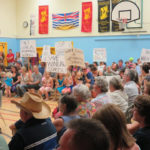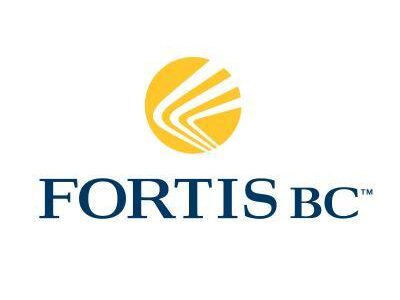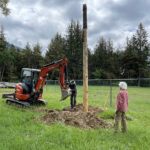LETTER: Insurance Brokers Assoc exec rebuts article re: rural insurance
To The Editor:
Editors Note: This letter is in response to the following article: http://bit.ly/2bLDDvf
The Insurance Brokers Association of B.C. would like to respond to inaccuracies in your story of Aug. 18 entitled: “RDCK director pushes for rural fire insurance change.”
“’We have areas in the Regional District where people can’t get insurance,’ says [Andy] Davidoff, the director for Electoral Area I, which covers rural Castlegar.”
Our member insurance brokerages advise that insurance coverage is available throughout British Columbia for properties in areas that have been graded “unprotected” by the Fire Underwriters Survey. Grading is based on a number of factors such as distance to hydrants and fire departments, and the capabilities of the fire departments.
Every insurance company has its own formula for calculating the risk of a particular property in relation to their underwriting capacities and insurance rates. Specific circumstances about individual properties may also have a bearing on insurability.
Insurance brokers in every community can explain rates and coverages, suggest ways homeowners can present a better risk profile to insurers, and advocate on homeowners’ behalf to the insurance companies.
“Davidoff first became concerned about changes to rural fire insurance in 2013.”
The Fire Underwriting Survey (FUS) in 2013 changed the rating of the fire department in Glade from semi-protected to unprotected. Among the factors in the FUS decision to change the rating were that the Tarrys Volunteer Fire Dept. needed to upgrade its equipment, and the community is served by a cabled ferry that does not run 24 hours a day.
That “Glade was eventually given ‘partial protected’ status…” is due in large part to the advocacy of local insurance brokers who were able to persuade a few insurers to provide coverage in Glade as semi-protected; however, many still class it as unprotected.
“…and recent losses from disasters like the fires in Fort McMurray this spring, mean rural homeowners will find it harder and harder to get fire insurance. He [Davidoff] predicts rates will double, or even quadruple, in the near future.”
This is pure speculation on Mr. Davidoff’s part. Insurers look at trends over several years and set their rates based on the projected costs in the future, not on the costs of recent losses.
They transfer the risks of catastrophic losses to reinsurance companies so that they are ready for any
size of disaster while keeping their rates as low as possible. One isolated event does not affect rates much, if at all.
“… you don’t enter into business if you’re not making profits.”
Insurance companies must meet the solvency requirements of the Office of the Superintendent of Financial Institutions to demonstrate that they have sufficient reserves to pay claims.
They must also report financial data, which is made public on the OSFI website http://www.osfi-bsif.gc.ca/Eng/wt-ow/Pages/FINDAT-pc.aspx. Once these solvency requirements are met, insurers strive to be as competitive as possible in their rates. Public insurers work under similar financial models.
“But there are so few insurance companies left.”
At the Financial Institutions Commission website http://www.fic.gov.bc.ca/web_listings/AuthorizedInsuranceCompanies.aspx there are about 150 general insurance companies authorized to do business in B.C. This number has changed very little over the past decades.
Our member insurance brokers tell us that there is lots of appetite on the part of insurance companies to provide coverage in B.C., and no shortage of providers to insure homes in Glade or other unprotected rural communities.
“… provincial insurer ICBC and the government have declined to move forward on the issue” [of offering a public insurance for residential property].
The provincial government monitors the affordability and availability of insurance on an on-going basis, and the insurance industry works closely with government to ensure there is a seamless relationship between government programs and private insurance.
The fact that “government has declined to move forward on his personal issue” indicates that it has reviewed the issue and determined that B.C. consumers are well served.
Finally, insurance is sold by licensed professionals who meet mandatory pre-licensing and on-going educational criteria, and for whom insurance is their primary business.
This means that there are licensed insurance professionals in every community who can provide information to consumers on which they can make sound, informed decisions.
Trudy Lancelyn
Deputy Executive Director
Insurance Brokers Association of B.C.























